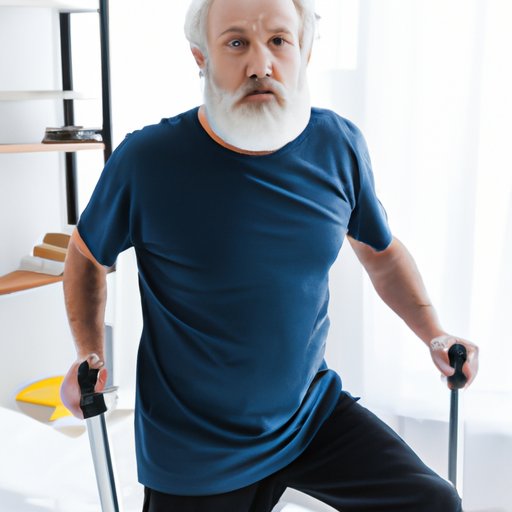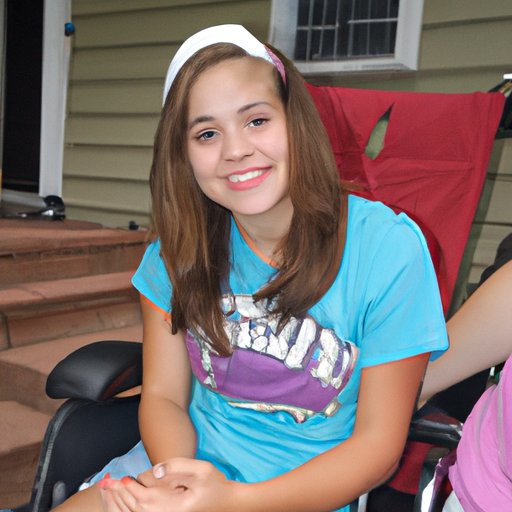
Can You Recover from a Stroke? Exploring the Path to Recovery
A stroke can have a significant impact on a person’s health and quality of life. However, with proper medical care, rehabilitation, and support, many stroke survivors are able to recover and regain their independence.
The Road to Recovery: Overcoming the Challenges After a Stroke
A stroke occurs when blood flow to the brain is disrupted, resulting in damage to brain cells. Depending on the severity of the stroke, individuals may experience weakness or numbness on one side of the body, difficulty speaking or understanding language, changes in vision, and other symptoms.
Recovering from a stroke can be challenging, both physically and emotionally. Stroke survivors may experience a range of emotions, from frustration and sadness to anxiety and fear. In addition, they may face physical challenges such as weakness or paralysis, difficulty with balance and coordination, and changes in sensation.
Coping with these changes can be difficult, but it is not impossible. Stroke survivors must learn to adjust to their new reality and find ways to overcome the challenges that come with stroke recovery.
Moving Forward: Tips for a Successful Stroke Recovery
Setting realistic goals is an important first step in stroke recovery. Stroke survivors may need to modify their expectations and focus on small, achievable goals that will help them build momentum and regain their confidence.
Establishing a positive mindset is also critical, as it can help stroke survivors remain motivated and focused despite the challenges they face. Building a support network of family, friends, and healthcare professionals can also help provide the emotional support needed to keep going.
Incorporating physical activity and exercise into daily routines is another key aspect of stroke recovery. Exercise can help improve strength, coordination, and flexibility, which can in turn help stroke survivors regain their independence.
Regaining Independence: How to Recover from a Stroke
Regaining independence after a stroke requires a combination of strategies, including rehabilitation techniques, adaptations to the home and work environment, and support from family and healthcare providers.
Physical therapy and occupational therapy play an important role in stroke recovery. These therapies focus on helping individuals improve their mobility and function, regain strength and coordination, and relearn basic skills such as dressing and eating. In addition, assistive devices such as canes, walkers, and wheelchairs can help stroke survivors move around more easily and safely.
Making adaptations to the home and work environment can also help stroke survivors feel more confident and independent. Simple changes such as installing grab bars in the bathroom or using a shower bench can make it easier to perform daily tasks. In addition, working with a vocational rehabilitation specialist can help stroke survivors return to work or find new employment opportunities.
The Importance of Rehabilitation in Stroke Recovery
Rehabilitation is a critical component of stroke recovery, as it can help individuals regain their physical and cognitive abilities and relearn basic skills. There are a variety of rehabilitation options available, including physical therapy, occupational therapy, speech therapy, and cognitive rehabilitation.
Physical therapy focuses on improving mobility and strength, while occupational therapy focuses on helping individuals perform daily activities. Speech therapy can help stroke survivors who have difficulty speaking or understanding language, while cognitive rehabilitation can help individuals recover their cognitive skills such as memory and attention.
Consistent and ongoing rehabilitation is important for ensuring the best possible outcomes for stroke survivors. Rehabilitation should begin as soon as possible after a stroke and should continue as long as necessary to help individuals achieve their goals.

Hope after Stroke: Stories of Successful Recovery
While stroke recovery can be challenging, it is important to remember that recovery is possible. There are many stroke survivors who have gone on to lead successful and fulfilling lives.
Personal stories of stroke recovery can provide inspiration and hope for others who are on the path to recovery. These stories can highlight the resilience and determination of stroke survivors, and can provide valuable insights into the recovery process.
Strategies for finding hope and inspiration during stroke recovery include connecting with other stroke survivors, seeking out positive role models, and focusing on personal strengths and achievements.
Managing Post-Stroke Challenges: A Comprehensive Guide
Post-stroke challenges can be difficult to manage, but there are strategies that can help. Common post-stroke challenges include depression, anxiety, fatigue, and difficulty with memory and concentration.
Coping with these challenges can involve a combination of strategies, such as participating in support groups, practicing stress-reduction techniques, and using medication as prescribed by a healthcare professional.
Tools for managing depression, anxiety, and other emotional challenges include mindfulness meditation, cognitive-behavioral therapy, and other forms of psychotherapy.
Transforming Adversity into Triumph: A Personal Account of Stroke Recovery
Personal stories of stroke recovery can provide valuable insights and inspiration for others who are on the path to recovery. One such story is that of a stroke survivor who was able to overcome significant challenges and find success after stroke.
This individual’s recovery journey included physical therapy, occupational therapy, and other rehabilitation techniques. In addition, he found support and inspiration from his family and healthcare providers, as well as from his own inner strength and determination.
Lessons learned during the recovery process included the importance of setting realistic goals, focusing on small achievements, and staying positive even in the face of adversity.
Conclusion
Recovering from a stroke is a challenging journey, but it is not impossible. With proper medical care, rehabilitation, and support, stroke survivors can regain their independence and lead fulfilling lives.
Throughout the recovery process, it is important to set realistic goals, establish a positive mindset, and incorporate physical activity and exercise into daily routines. Rehabilitation, including physical therapy, occupational therapy, and other therapies, is critical for improving mobility and function and helping individuals regain their independence.
By sharing personal stories of stroke recovery and highlighting strategies for overcoming post-stroke challenges, we can provide hope and inspiration for stroke survivors and their families, and help them find success after stroke.




